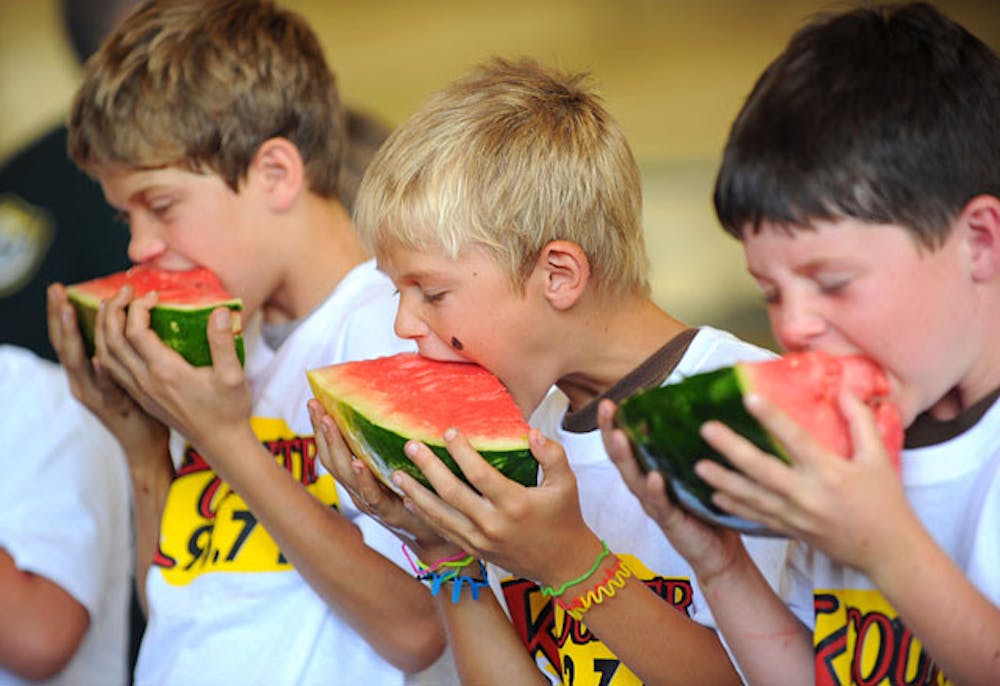Last March, Gail Hodge hoped for a good harvest. But within a month, 40 percent of her family farm’s watermelon crops had gone bad.
“Sometimes it’s not an issue,” the Hodge Farms co-owner said. “Other times, it can be devastating.”
Over the past five to seven years, Fusarium wilt, a deadly watermelon disease caused by a pathogen in the soil, has increasingly appeared in farms throughout North Central
Florida, said Nicholas Dufault, a UF Institute of Food and Agricultural and Sciences assistant professor.
With summer approaching, farmers looking to harvest their crops are once again faced with the disease.
Florida is among the top four watermelon-producing states in the U.S., according to the Agricultural Marketing Resource Center’s website.
Until a feasible solution is found, Hodge said her family will put more attention into other crops and cattle — or move to find uninfected soil.
Researchers and growers can use a process called grafting to cure the disease. Squash rootstock, often unaffected by the soil-born disease, can be merged with a scion plant for resistant watermelons to be grown from them, said Xin Zhao, a UF IFAS associate professor.
But solutions like grafting are expensive and can cost up to four times as much as planting watermelons normally, she said.
Dufault said he’s optimistic that he and other researchers will find a solution, but he said the pathogen will only continue to evolve.
“We’ll always be looking to ways to fight this disease,” he said.
Zion Barber, left, Jacob Musselwhite and Colton Crane, right, sink their teeth into pieces of watermelon during the watermelon-eating contest at the 65th annual Newberry Watermelon Festival at the Canterbury Equestrian Showplace in 2010.






